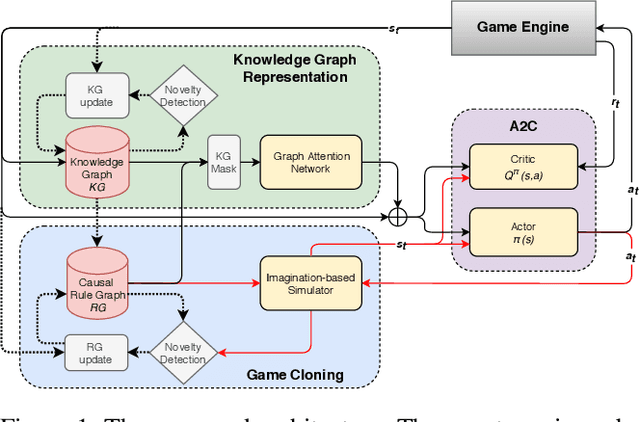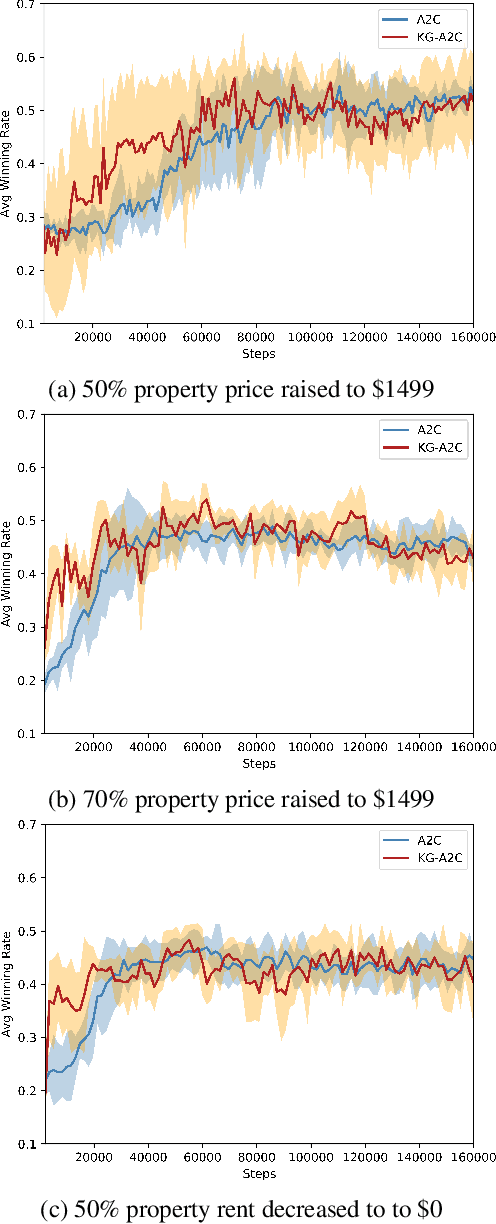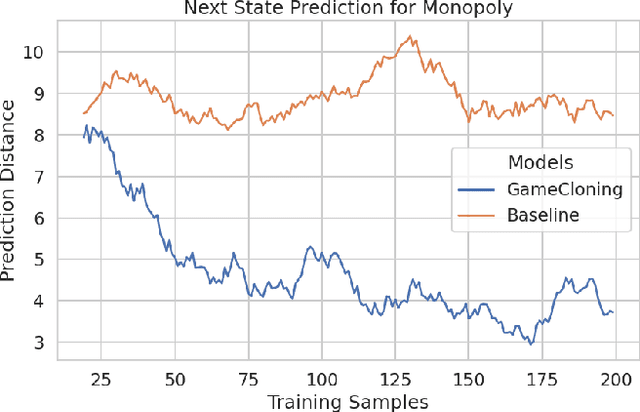Detecting and Adapting to Novelty in Games
Paper and Code
Jun 04, 2021


Open-world novelty occurs when the rules of an environment can change abruptly, such as when a game player encounters "house rules". To address open-world novelty, game playing agents must be able to detect when novelty is injected, and to quickly adapt to the new rules. We propose a model-based reinforcement learning approach where game state and rules are represented as knowledge graphs. The knowledge graph representation of the state and rules allows novelty to be detected as changes in the knowledge graph, assists with the training of deep reinforcement learners, and enables imagination-based re-training where the agent uses the knowledge graph to perform look-ahead.
* 10 pages, 5 figures, Accepted to the AAAI21 Workshop on on
Reinforcement Learning in Games
 Add to Chrome
Add to Chrome Add to Firefox
Add to Firefox Add to Edge
Add to Edge